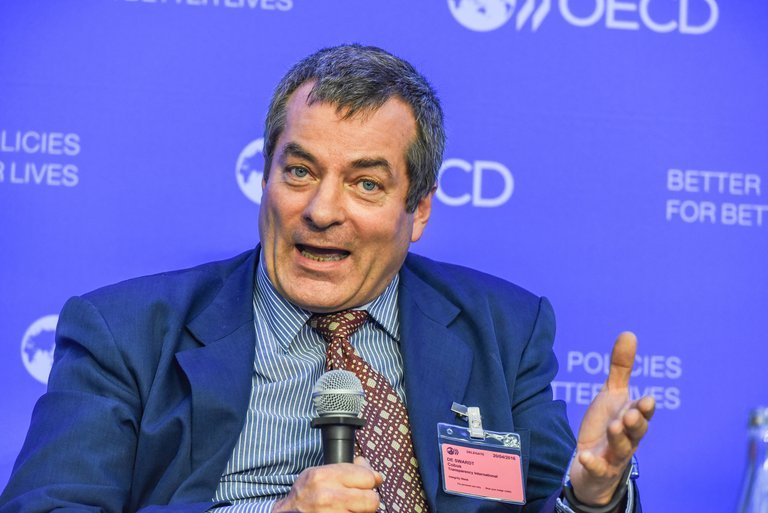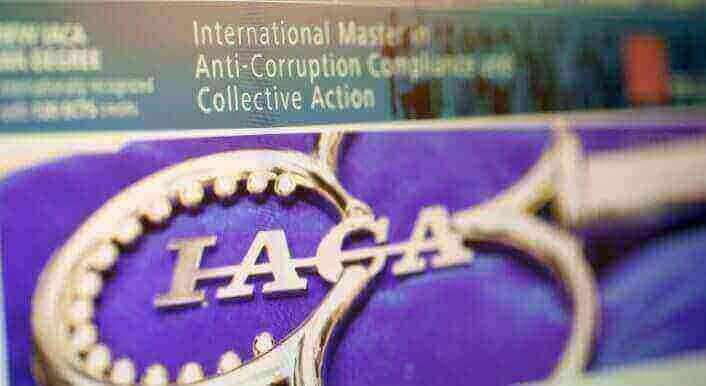Fighting workers’ rights
Transparency International is in crisis. The organization needs to cut costs and restructure its international secretariat in Berlin. At the same time, Transparency is fighting against its workers council in the local courts. In a bid to ease tensions, Transparency has also now made changes to its leadership.

Transparency International sees itself as the flagship of the global fight against bribery and the corrupt elites who are hiding their wealth in offshore companies and tax havens. But internally, Transparency does not live up to the principles it champions. The organization is doing business with corrupt companies, as CORRECTIV uncovered last year, and camouflages income in its financial reporting in a way that renders public scrutiny of the accounts impossible.
The current court case in the Berlin labour court highlights the difficulties Transparency has in dealing with its own staff. The organisation is currently restructuring its Berlin-based international secretariat. The secretariat is the backbone of the global organisation, supporting the national chapters in their work. But over time, a number of well-paid executives have assembled near the top during the tenure of managing director Cobus de Swardt, who has been at the helm of Transparency for nearly a decade. This week, the South African national has lost some of his responsibilities to a newly-appointed second managing director, according to information obtained by correctiv.org.
To cut costs, Transparency sought to flatten hierarchies and cut staff. The organisation’s workers council attempted to strengthen employee rights by establishing a so-called finance committee (German: Wirtschaftsausschuss). Such a committee can for example demand management to disclose certain financial information. Transparency’s management is trying to prevent the formation of this committee, even filing a legal case against it.
The action taken by Transparency’s management takes place against the background of some fundamental details of German labour law. In its fight with the workers council, Transparency attempted to declare itself a ‘tendency’ operation (German: Tendenzbetrieb) in the Berlin labour court. In other words, an organisation that fulfills certain social tasks or is politically active. Churches or publishing houses are ‘tendency’ operations.
Employees of these organisations enjoy less protection against lay-offs than normal companies. They can, for example, be fired for their political views. Another advantage from the employer’s point of view: their workers’ council is not allowed to establish a finance committee.
The Berlin labour court in July rejected Transparency’s claim of being a ‘tendency’ operation. Transparency has lodged an appeal against the judgement, the court’s spokeswoman told correctiv.org.

Transparency’s managing director Cobus de Swardt has been demoted in a bid to ease tensions.
The atmosphere at the international secretariat had been dangerously soured. In an apparent bid to ease tensions, there have now been changes at the top. Transparency confirmed to CORRECTIV that Lucas Olo Fernandes has been appointed as interim managing director in charge of the restructuring. The duties of MD de Swardt have been reduced to strategic planning and representing the organisation. Fernandes, who is from Equatorial Guinea, previously oversaw Transparency’s work in Central Africa.
One bone of contention in the internal squabbles at Transparency is the payments made to a number of executives for additional homes maintained outside of Germany, according to current and former employees. Transparency confirmed the payments had taken place but declined to provide further details.
During a meeting at the beginning of the month, Transparency is said to have announced additional staff reductions. The internal atmosphere has reached a point that some employees thought management would go as far as using lay-offs to prevent the workers council to form its finance committee. Such a committee can only be formed at organisations with more than 100 employees. As recently as this summer, Transparency’s staff in Berlin numbered over 150.
In a statement to correctiv.org, Transparency said it had taken matters to court in an attempt to seek clarity over its legal status in principle. It said the workers’ council finance committee was fully operational. The workers’ council on the other hand declined to answer questions, saying that negotiations with management were ongoing.
Transparency appears paralysed amid the fighting over staff and cost cuts. In the Berlin labour court, the workers council argued that the international secretariat simply functions as a self-serving bureaucracy while the actual work is done at the national chapters. It said there was nothing to suggest that Transparency is implementing its current five-year strategy.
In addition, Transparency needs to cut costs. Last year it posted income of 27 million euros. People familiar with the organisation say it now faces a funding gap of several million euros. The main reason is a reduction in funding by the British government. Transparency said in its statement to CORRECTIV that it is facing some budget challenges but did not elaborate further.
Global anti-corruption activists will have the opportunity to discuss all this during the next round of the International Anti-Corruption Conference (IACC), which starts December 1. Transparency is selling the conference, which takes place every second year, to governments, including those that seek to improve their tarnished reputations.
For this year’s conference, Transparency has chosen a particularly fitting location: the tax haven Panama.
For previous CORRECTIV coverage of Transparency International, see:
Hide and seek – the gaping holes in Transparency International’s financial reporting

